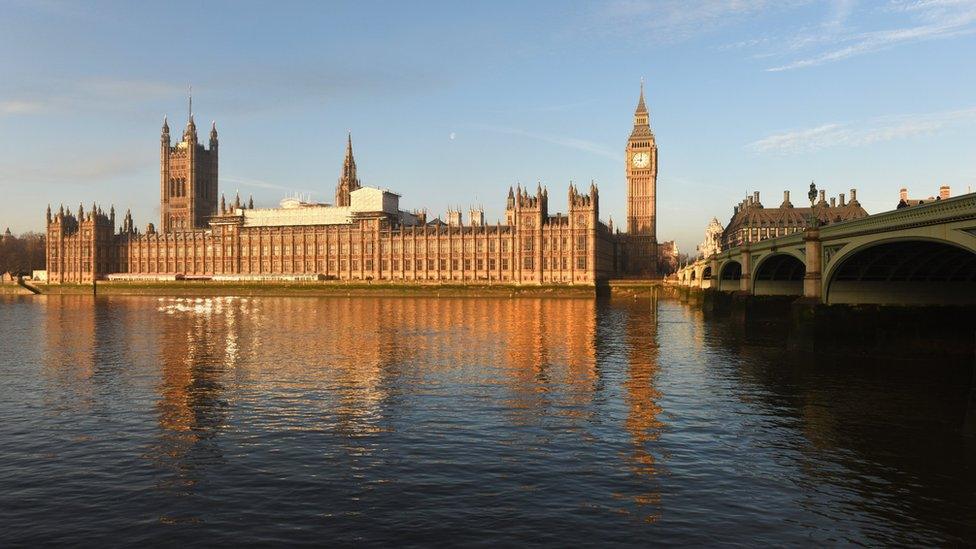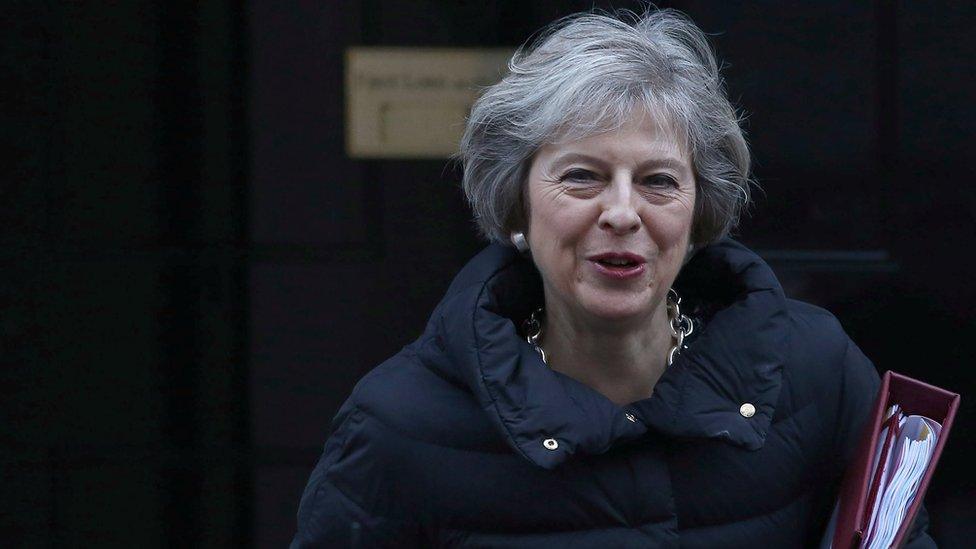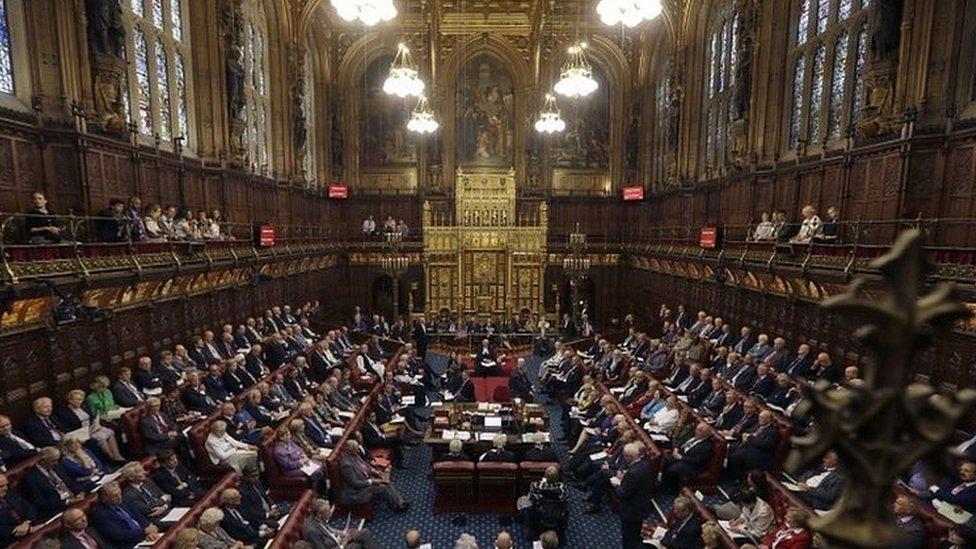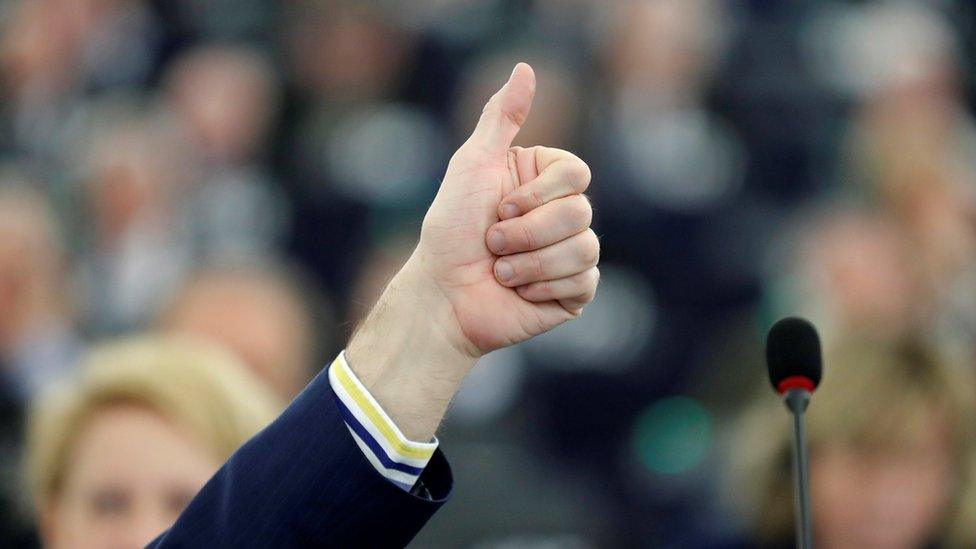How will Parliament's Brexit vote work?
- Published

Prime Minister Theresa May has said Parliament will vote on the final deal that is agreed between the United Kingdom and the European Union.
This came after months of wrangling over MPs' role in scrutinising Britain's exit from the EU.
What will Parliament vote on?
Theresa May confirmed that she would put "the final deal that is agreed between the UK and the EU to a vote in both Houses of Parliament, before it comes into force".
In other words, Parliament will vote on the final Brexit agreement, the 'divorce settlement', between the UK and the EU.
The EU and the UK do not yet seem to agree what the final Brexit deal will actually cover. EU representatives have suggested there will be two separate sets of negotiations - covering a withdrawal agreement and a new trade deal - while the UK government has suggested only one will be needed.
MPs will also get to vote on the Great Repeal Bill which will incorporate all existing EU legislation into UK law and come into force on the day that Britain leaves the EU.

What is Parliament's role in scrutinising the deal?

Theresa May says Parliament will vote on the final Brexit deal
As well as voting on the final Brexit deal, the prime minister has said that Parliament would have "the opportunity to debate and discuss" Britain's exit from the EU. This will be through debates in the House of Commons and Lords as well as scrutiny through select committees.
Parliament will not be able to amend the Brexit deal itself, but debates should provide an opportunity for MPs' voices to be heard.
However, the government has insisted that overall responsibility for Brexit negotiations with the EU will lie with the prime minister who will be supported by Brexit Secretary David Davis and his department.

What happens if Parliament votes down the deal?
Parliament voting down the deal would not stop Brexit. Britain would still leave within two years unless all 27 EU member states agreed to extend the deadline. The government agrees. Brexit Secretary David Davis told MPs "it's not the job of Parliament" to reverse the referendum decision.
Beyond that, it's not totally clear exactly what happens. If the House of Commons votes against a treaty, the government cannot immediately ratify it. If it wants to continue with the ratification process they must lay a statement in Parliament giving the reasons why it wants to proceed.
Twenty one sitting days later the House of Commons can vote again on whether to approve the treaty. If they vote down the treaty again, the process can be repeated, potentially blocking a treaty until the two year deadline set out in Article 50 is reached.
If the government decides not to proceed with the treaty they could return to the EU to seek changes to the deal.
Alternatively, they could accept Parliament's decision and leave the EU on World Trade Organisation rules. In principle, they could also call a referendum on the final deal, as the Liberal Democrats have suggested, although there seems to be little appetite for this in government. The final option would be to dissolve Parliament and call a snap general election.
The situation could be complicated further if MPs and peers voted separately on the terms of withdrawal from the EU and any future trading arrangements.

Is there a majority in Parliament to vote down the deal?
We don't know. However, although only 156 out of 650 MPs declared that they supported leaving the European Union before the referendum, Parliament overwhelmingly backed the government's Brexit timetable in a Commons vote last month.
Whether minds will be changed by the final deal depends on how the negotiation process rolls out over the next two years.

Could the House of Lords delay the deal?

No. If the House of Lords votes against ratification, but the Commons does not, then a ministerial statement must be laid before the House of Lords explaining why the treaty should nevertheless be ratified.

What about the European Parliament?

An MEP votes in the European Parliament, which would need to approve the UK's withdrawal agreement
It is enshrined in Article 50 that the withdrawal agreement will have to be approved by the European Parliament by a simple majority.
A number of EU representatives have suggested that the UK would only be able to negotiate a new trade deal after it has left the EU. Such a trade deal would also be subject to majority approval by the European Parliament.
Unlike the withdrawal agreement, the trade deal would also likely need to be approved by parliaments throughout Europe and could be vetoed by any of the 27 member states of the EU.
The problems encountered with drawing up the Transatlantic Trade and Investment Partnership between the EU and the United States suggest this process could be slow and cumbersome.